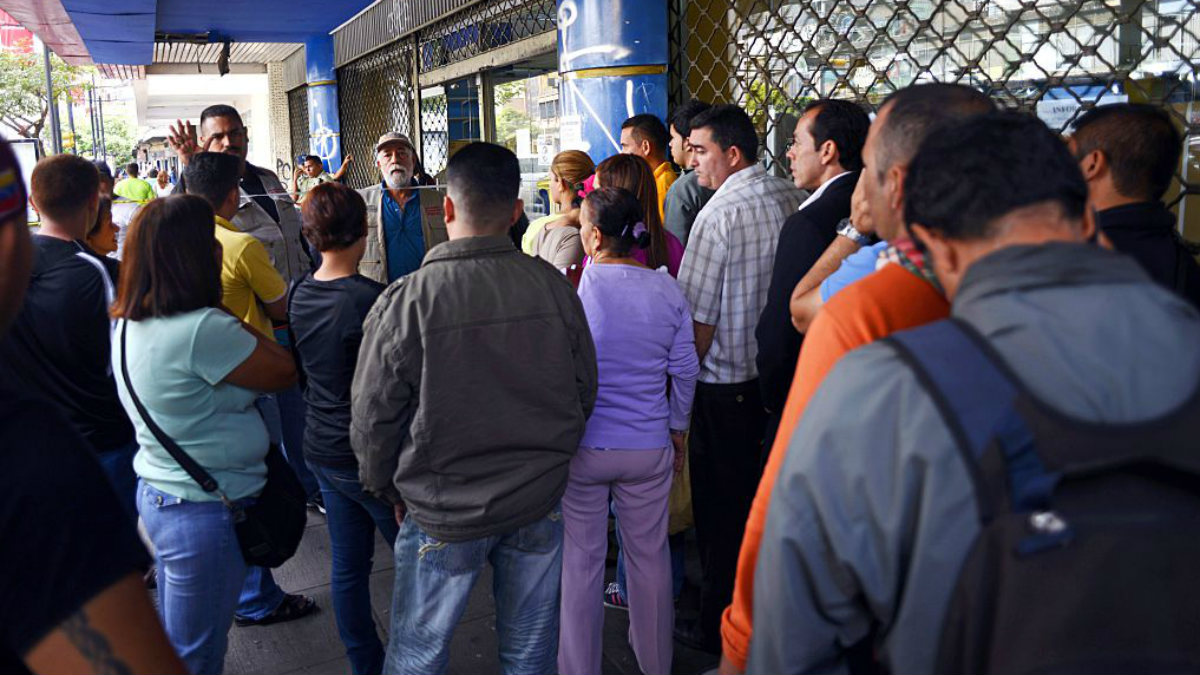Why Venezuela is imposing a two-day week
Almost three million public sector workers to stay home in a bid to allay electricity shortage

A free daily email with the biggest news stories of the day – and the best features from TheWeek.com
You are now subscribed
Your newsletter sign-up was successful
Tuesday is the new Friday for government employees in Venezuela, who will now only work two days a week until the country's energy crisis is resolved.
"From tomorrow, for at least two weeks, we are going to have Wednesdays, Thursdays and Fridays as non-working days for the public sector," President Nicolas Maduro announced in a televised address to the nation.
A severe drought has reduced water supplies in the country's main hydroelectric dam to dangerous lows. Venezuela has been struggling to cope with the resulting energy shortage since February, when shops were instructed to shorten their opening hours.
The Week
Escape your echo chamber. Get the facts behind the news, plus analysis from multiple perspectives.

Sign up for The Week's Free Newsletters
From our morning news briefing to a weekly Good News Newsletter, get the best of The Week delivered directly to your inbox.
From our morning news briefing to a weekly Good News Newsletter, get the best of The Week delivered directly to your inbox.
Hospital and state-run grocery workers will be exempt from the new timetable and all workers will be paid a full salary. Primary and secondary schools will also close on Fridays, Deutsche Welle reports.
Most of Venezuela's 2.8 million public sector workers have been on a four-day week since 6 April, but the new measures indicate an increasing urgency to the crisis.
Venezuelans are also facing rolling blackouts to cut down on electricity consumption. Starting next week, power supplies will be cut for four hours a day for at least the next 40 days.
On 1 May, the country's time zone will be pushed forward by half an hour to salvage more daylight during working hours.
A free daily email with the biggest news stories of the day – and the best features from TheWeek.com
The government has blamed the energy crisis on the El Nino weather pattern, but "outside experts say mismanagement and a corrupt government have been the root cause", CNN says.
Power outages have exacerbated the oil-dependent nation's already significant economic woes. Long queues for food and medical supplies are commonplace and inflation is predicted to soar by as much as 500 per cent in 2016.
"We can't go on living like this," one Venezuelan told CNN. "We Venezuelan people deserve much better."
-
 What to know before filing your own taxes for the first time
What to know before filing your own taxes for the first timethe explainer Tackle this financial milestone with confidence
-
 The biggest box office flops of the 21st century
The biggest box office flops of the 21st centuryin depth Unnecessary remakes and turgid, expensive CGI-fests highlight this list of these most notorious box-office losers
-
 The 10 most infamous abductions in modern history
The 10 most infamous abductions in modern historyin depth The taking of Savannah Guthrie’s mother, Nancy, is the latest in a long string of high-profile kidnappings
-
 Epstein files topple law CEO, roil UK government
Epstein files topple law CEO, roil UK governmentSpeed Read Peter Mandelson, Britain’s former ambassador to the US, is caught up in the scandal
-
 Iran and US prepare to meet after skirmishes
Iran and US prepare to meet after skirmishesSpeed Read The incident comes amid heightened tensions in the Middle East
-
 Israel retrieves final hostage’s body from Gaza
Israel retrieves final hostage’s body from GazaSpeed Read The 24-year-old police officer was killed during the initial Hamas attack
-
 China’s Xi targets top general in growing purge
China’s Xi targets top general in growing purgeSpeed Read Zhang Youxia is being investigated over ‘grave violations’ of the law
-
 Panama and Canada are negotiating over a crucial copper mine
Panama and Canada are negotiating over a crucial copper mineIn the Spotlight Panama is set to make a final decision on the mine this summer
-
 How oil tankers have been weaponised
How oil tankers have been weaponisedThe Explainer The seizure of a Russian tanker in the Atlantic last week has drawn attention to the country’s clandestine shipping network
-
 Why Greenland’s natural resources are nearly impossible to mine
Why Greenland’s natural resources are nearly impossible to mineThe Explainer The country’s natural landscape makes the task extremely difficult
-
 Iran cuts internet as protests escalate
Iran cuts internet as protests escalateSpeed Reada Government buildings across the country have been set on fire